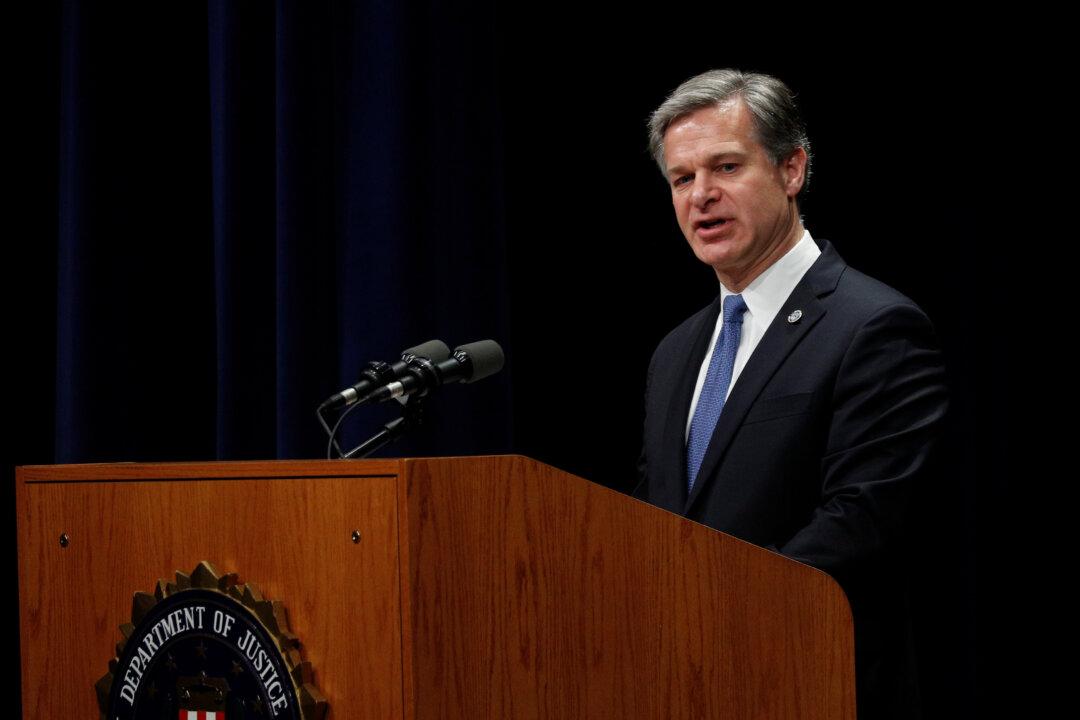The FBI has more than 1,000 active investigations into the theft of U.S. intellectual property, “almost all leading back to China,” as the communist regime is waging a “generational fight” to achieve economic dominance, FBI Director Christopher Wray told a Senate committee on July 23.
“There is no country that poses a more severe counterintelligence threat to this country right now than China,” Wray told the Senate Judiciary Committee, reiterating previous warnings that he’s made about the Chinese regime.





